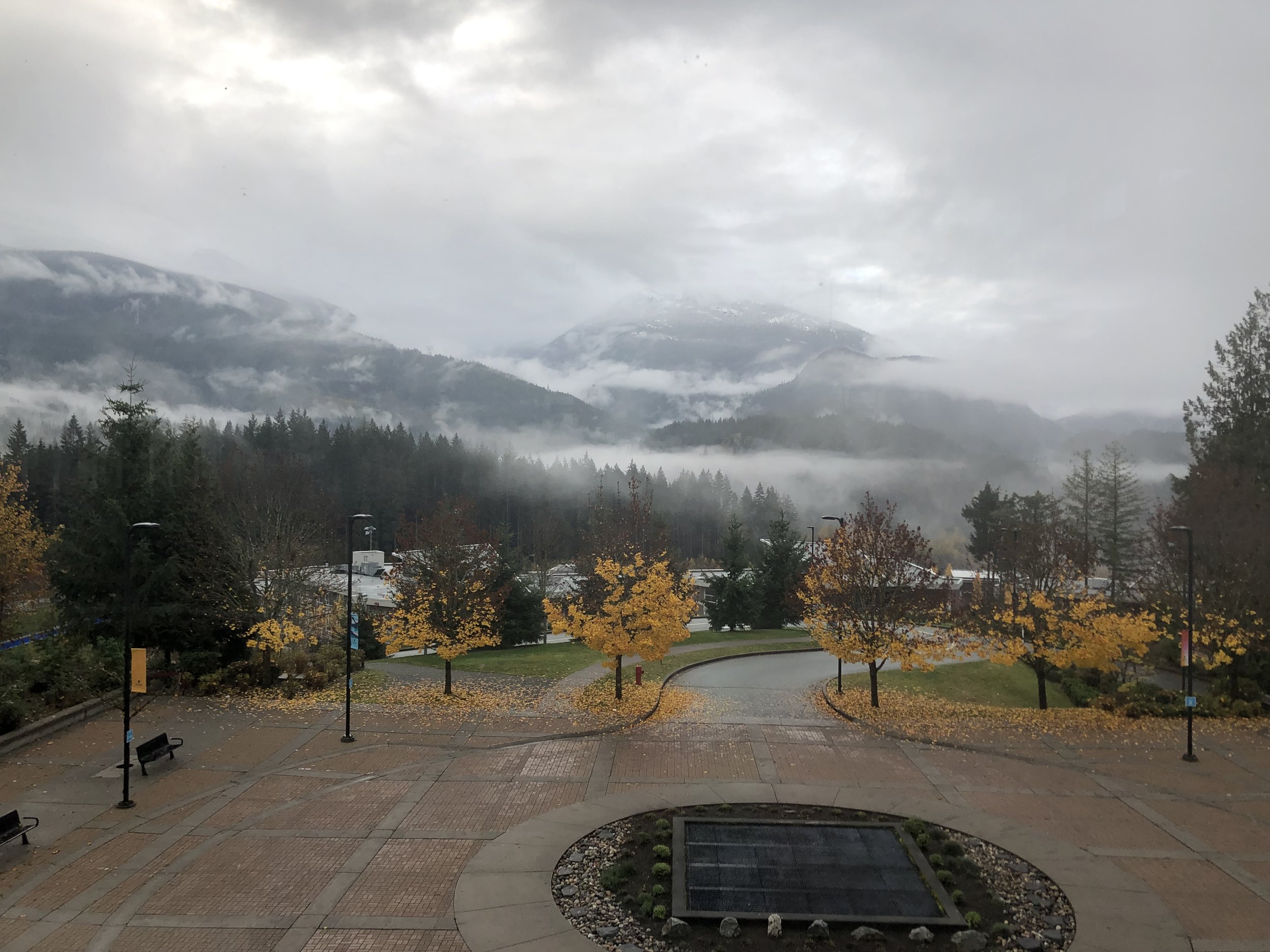November 2nd Roundtable #2
It was a misty yet colourful drive up to the Squamish campus of Capilano University on Saturday, November 2nd, for the second meeting of the Howe Sound Roundtable. Leaves had turned shades of yellow, red, and orange, and clouds shrouded the snow-capped mountains.
As one of the university’s first events at this campus, they provided us with space in the Library Building. Associate Vice President Bran Storey joined us for the day, shared an overview of plans for the campus use, and provided a tour. We enjoyed the beautiful and inspiring views from the large picture windows as well as the privacy in this expansive space before enrollment and use of the space begins to increase.
Returning and new members travelled from the Sunshine Coast, Vancouver, and Bowen Island, joining those who had come the short distance from elsewhere in Squamish. The morning was spent recapping the May 11th inaugural Roundtable on Gambier Island, and updating on news and relevant information from the past six months.
Chris Corrigan of Harvest Moon Consulting opened with a territorial acknowledgement and shared that part of his fees are contributed to the Snichem Foundation that helps to keep the Sḵwx̱wú7mesh sníchim (language) alive.
Ruth Simons. lead of the Biosphere Initiative shared relevant updates from the past six months. A number of actions were taken, including the creation of a Communications Toolkit for members to download resources such as FAQs, posters, and key messages. Newly released strategies such as the Squamish Nation’s Climate Legacy Strategy and Generational Plan, the Coastal Marine Strategy and Canada’s 2030 Nature Strategy will be referenced in an updated list in the Unity Plan document.
We welcomed guest Bill Henwood who was contracted by the Howe Sound Biosphere Region Initiative Society (HSBRIS) in 2019-2020. Bill was instrumental in writing the content for our UNESCO nomination document and developing the table of contents and content for the Nchu'ú7mut/Unity Plan. With the theme of this Roundtable being how we measure our progress, Bill shared thoughts from his years of experience as a planner with Parks Canada. Management plans often sit on shelves and are neither maintained nor reviewed. However, with ongoing UNESCO designation reliant on measurable results and reviews by UNESCO every ten years, there is a requirement for our management plan to be kept current.
Several Roundtable members with business and industry backgrounds agreed that key indicators are important for measuring and managing progress and results. Throughout the day, we referenced many resources that can provide reliable indicators. The comment “no numbers without a story and vice versa” was well received.
The first mixed-group discussion centred on how the Nchu’ú7mut/Unity Plan could be incorporated into various sectors and how progress or reversal can be measured/tracked. Small group discussions by sector followed this with many action items to be followed up on.
Notes from the Roundtable were recorded by Chris Corrigan.
The next Roundtable meeting will take place Saturday, May 3rd, 2025







